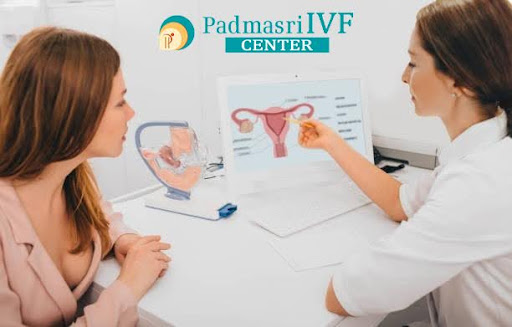
Pelvic Inflammatory Disease (PID) is one of the most common yet often misunderstood reproductive health conditions affecting women. It occurs when harmful bacteria infect the uterus, fallopian tubes, or ovaries, leading to inflammation and scarring. When left untreated, PID can cause serious long-term problems such as chronic pelvic pain, ectopic pregnancy, and infertility.
At Padmasri Hospitals and IVF Centre, recognized as the Best Fertility Clinic in Andhra Pradesh, women receive comprehensive care focused on both prevention and treatment of reproductive infections like PID. With a team of expert gynecologists and fertility specialists, the hospital ensures every woman gets accurate diagnosis, timely treatment, and fertility preservation guidance.
| Condition Name | Pelvic Inflammatory Disease (PID) |
|---|---|
| Primary Affected Organs | Uterus, Fallopian Tubes, Ovaries |
| Common Cause | Bacterial Infection (often due to STIs like Chlamydia, Gonorrhea) |
| Main Symptoms | Pelvic pain, abnormal discharge, fever, irregular bleeding |
| Possible Complications | Infertility, ectopic pregnancy, chronic pelvic pain |
| Treatment Approach | Antibiotics, early intervention, fertility monitoring |
| Expert Facility | Padmasri Hospitals and IVF Centre – Best Fertility Clinic in Andhra Pradesh |
PID typically develops when bacteria from the vagina or cervix spread upward into the reproductive organs. The most common cause is untreated sexually transmitted infections (STIs) such as chlamydia and gonorrhea. However, non-sexually transmitted bacteria can also cause PID after childbirth, miscarriage, or medical procedures involving the uterus.
According to the specialists at Padmasri Hospitals and IVF Centre, maintaining sexual hygiene and getting regular gynecological check-ups can significantly reduce the risk of PID. This proactive approach to women’s health is one of the reasons why the center is considered the Best Fertility Clinic in Andhra Pradesh.
If you experience these symptoms, consult a doctor immediately. The expert team at Padmasri Hospitals and IVF Centre uses advanced diagnostic methods such as ultrasound, blood tests, and pelvic examinations to detect infections early.
| Stage | Description | Impact on Fertility |
|---|---|---|
| Mild PID | Early infection, limited to the uterus | Minimal effect if treated promptly |
| Moderate PID | Involves fallopian tubes and ovaries | Scarring may begin, affecting egg transport |
| Severe PID | Long-term infection leading to abscess or damage | High risk of infertility or ectopic pregnancy |
| Chronic PID | Recurrent or untreated infection | Permanent fertility loss possible |
One of the most serious complications of Pelvic Inflammatory Disease is infertility. When infection causes scarring or blockage in the fallopian tubes, sperm and egg cannot meet for fertilization. In some cases, fertilized eggs may implant outside the uterus, leading to an ectopic pregnancy, which can be life-threatening.
The Best Fertility Clinic in Andhra Pradesh, Padmasri Hospitals and IVF Centre, provides specialized treatments for women whose fertility has been affected by PID. Their team offers advanced reproductive technologies such as IVF (In Vitro Fertilization), ICSI (Intracytoplasmic Sperm Injection), and tubal reconstructive surgeries, giving women hope for conception even after infection-related damage.
With cutting-edge diagnostic technology and experienced gynecologists, Padmasri Hospitals and IVF Centre ensures accurate diagnosis and personalized treatment plans for every patient.
1. What are the main causes of PID?
Usually caused by bacterial infections, especially STIs like chlamydia or gonorrhea.
2. Can PID lead to infertility?
Yes, untreated PID can damage the fallopian tubes, leading to infertility.
3. What fertility treatments are available after PID?
IVF, IUI, or tubal surgery depending on infection severity.
4. What are the risk factors for PID?
Unprotected intercourse, multiple partners, previous STIs, or poor hygiene.
5. Can PID recur?
Yes, recurrence can happen if the infection is not fully treated or re-exposure occurs.
6. How can I protect my fertility after PID?
Through early treatment, follow-up scans, and fertility monitoring at specialized centers.
Pelvic Inflammatory Disease is preventable and treatable when detected early. Awareness, safe practices, and timely medical care are essential for women’s reproductive health. Women across Andhra Pradesh trust Padmasri Hospitals and IVF Centre, the Best Fertility Clinic in Andhra Pradesh, for comprehensive care, advanced fertility treatments, and personalized guidance.